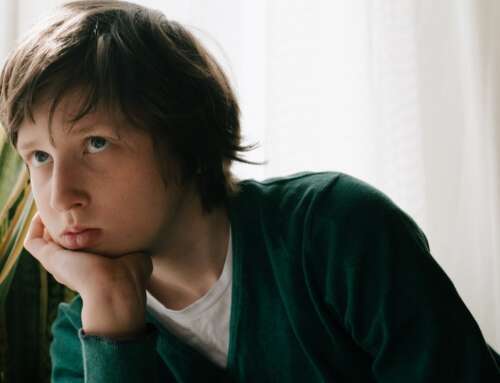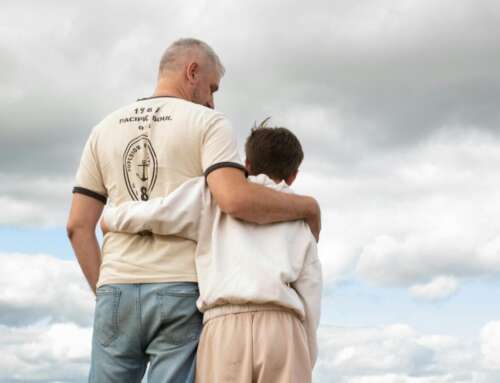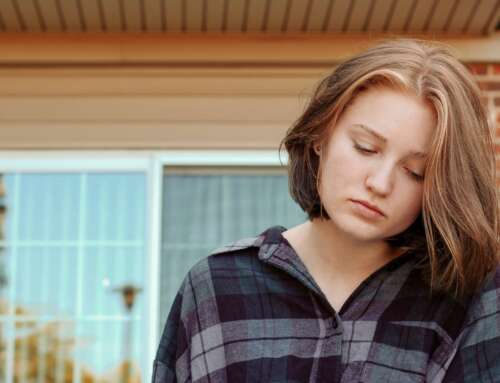Adolescence is a time of change and it can be hard to tell the difference between “normal” teenage behaviour, and depression and anxiety.
One in six young people in Australia has an anxiety disorder and around one in 16 has depression, so the chances are we all know someone who has been affected by these illnesses.
Deputy CEO of beyondblue: the national depression initiative, Dr Nicole Highet, says it is important to seek help early if your son or daughter shows any signs of these conditions as it can also prevent the illnesses becoming more severe or recurring later in life.
“Many different factors can contribute to depression and anxiety in young people and when it happens, it’s no one’s fault,” Dr Highet says. “The important thing is that depression and anxiety are identified and treated early. If left untreated, they can lead to problems at school or work, may lead to alcohol and drug abuse, and potentially increase the risk of suicide.”
Dr Highet says you can start by trying to get your son or daughter to talk about their feelings – be aware that they may find it awkward to discuss their thoughts and emotions openly with you and may get angry when you ask if they’re OK, or try and brush it off.
“When teenagers have depression or anxiety, it doesn’t help to pressure them to ‘snap out of it’ or ‘cheer up’. You wouldn’t expect them to ‘snap out’ of a physical illness like diabetes.. So don’t assume that a mental health problem will go away without help.”
“If your teenager doesn’t want to talk to you about his or her problems, try not to take it personally. Sometimes it’s easier for them to talk to someone they don’t know.”
Warning signs of depression and anxiety
Depression doesn’t just cause people to feel sad or down – and anxiety doesn’t just make people worry. Teenagers can express depression and anxiety in many different ways. They might:
• have trouble falling or staying asleep, or complain of restless unsatisfying sleep
• be tired, grumpy, irritable, tearful or upset most of the time
• feel restless, keyed up or on edge
• lose interest in things they used to enjoy and have trouble starting and completing assignments or work
• be forgetful, lose concentration and be distracted easily
• become withdrawn and lose friends
• either refuse to eat or eat a lot – and either lose or gain weight quickly
• have tense or sore muscles
• complain of feeling physically awful, with unexplained aches and pains, and not want to go to school.
Dr Highet: “Recovery is possible, but it can be a slow process. The whole family will need to be patient and understanding. Praise your son or daughter for small achievements and try to avoid criticisms.”
“And set time aside for your own relaxation – try to continue enjoyable family activities rather than let the problem take over everyone’s lives.”
Free resources for carers
beyondblue has free resources specifically to help carers. This includes an excellent booklet that provides carers with practical strategies, advice and guidance on how to deal with the range of situations they might face. It also encourages people who are in a caring role to look after their own health and well-being.
beyondblue also has a DVD titled Carers’ Stories of Hope and Recovery, which features the stories of everyday Australians who have cared for their partners and children with depression and/or anxiety. It also includes information and advice from the beyondblue clinical adviser.
For more information about depression and anxiety in young people, visit www.youthbeyondblue.com, call the beyondblue info line on 1300 22 4636 or email infoline@beyondblue.org.au.
There are also state-based Parentline Services, which provide counselling and support for parents – visit www.parentline.com.au for contact details in your state or territory. You can also contact headspace at www.headspace.org.au for youth mental health services.
Trained counsellors are also available by phoning these 24-hour telephone counselling services: Lifeline on 13 11 14 or Kids Help Line on 1800 55 1800.
Editor Dr Ramesh Manocha
Source: Youthbeyondblue







Leave A Comment